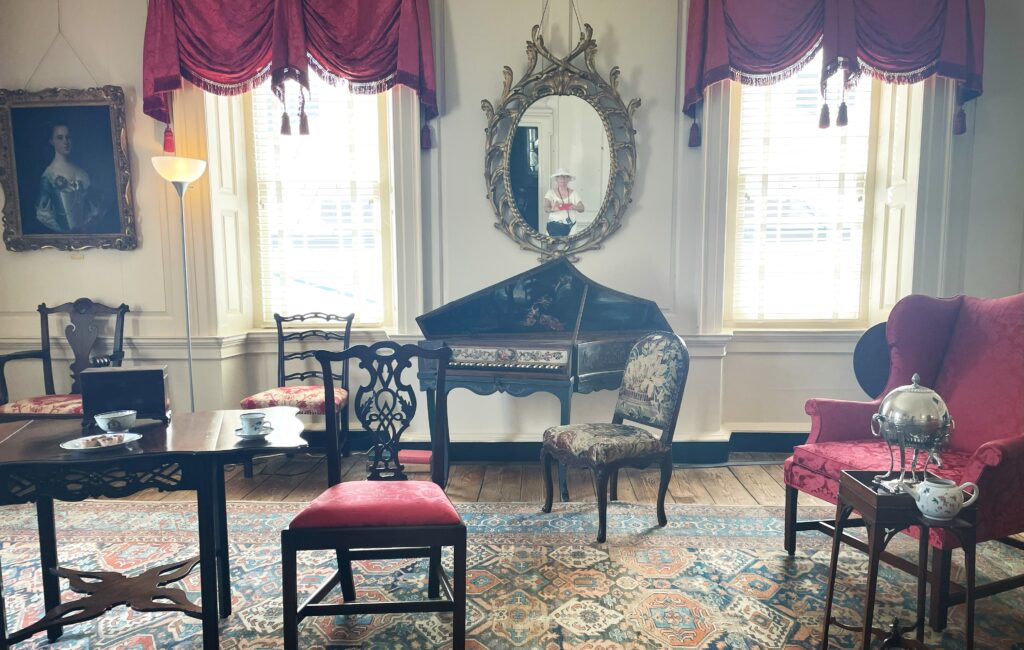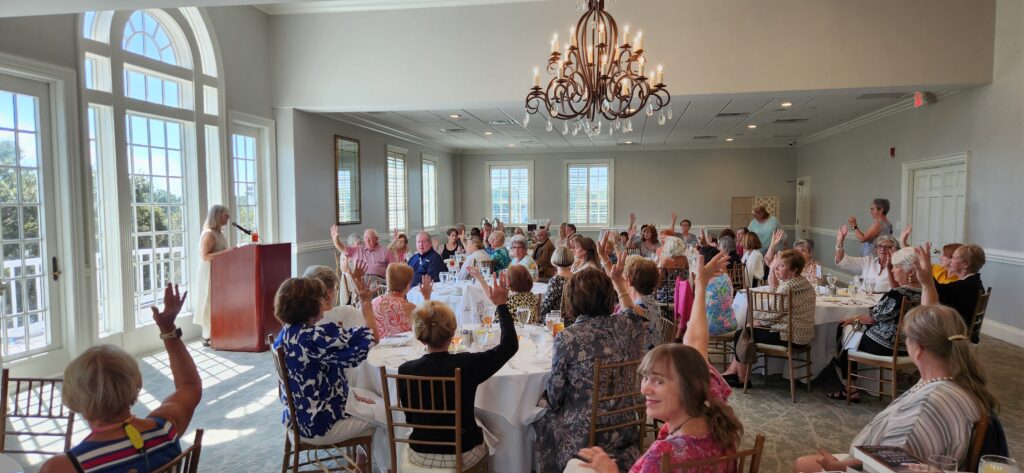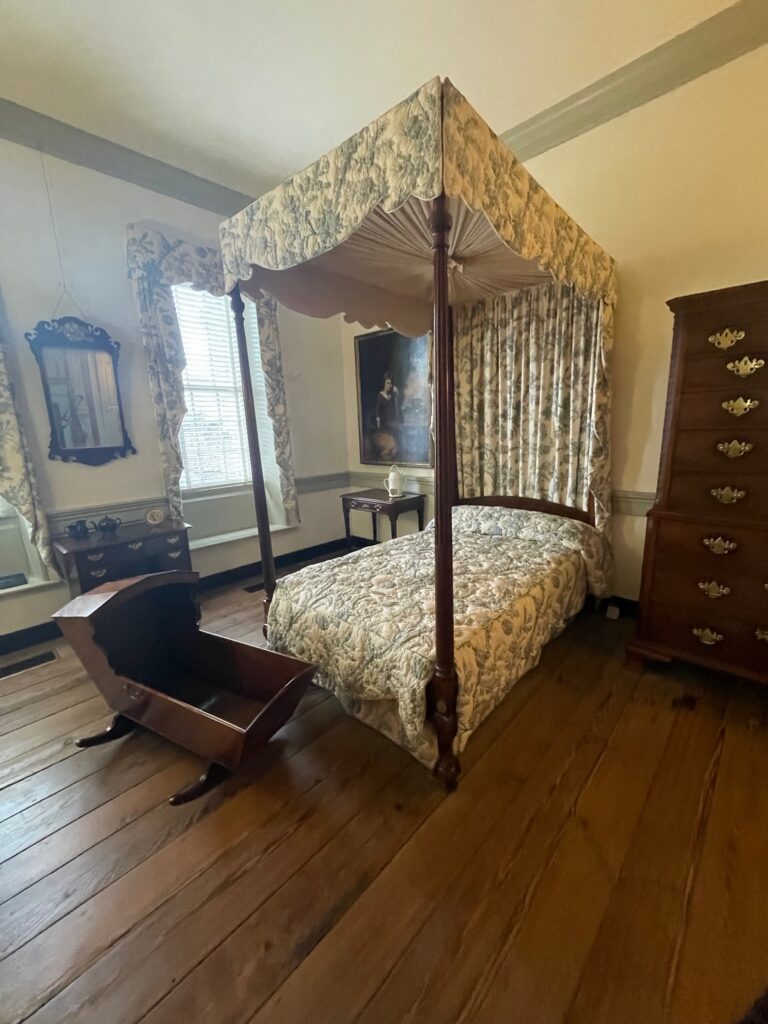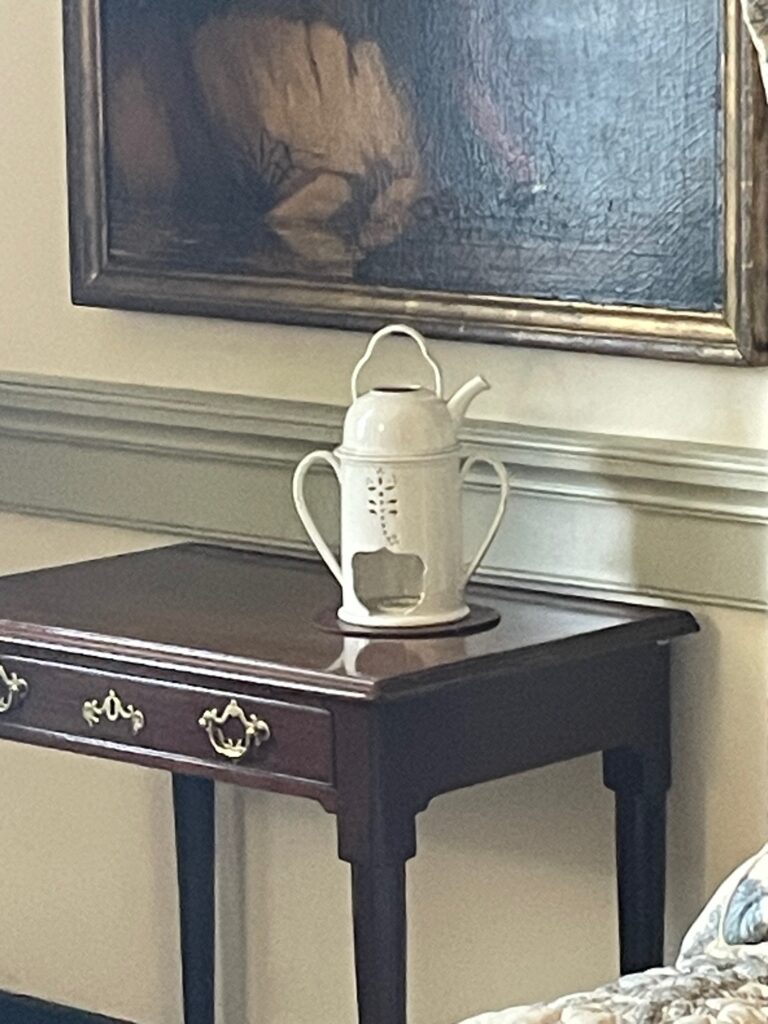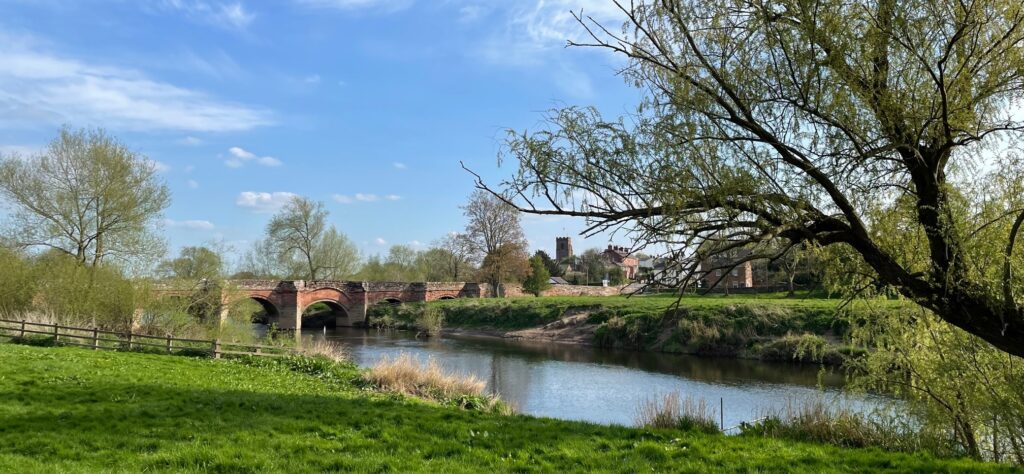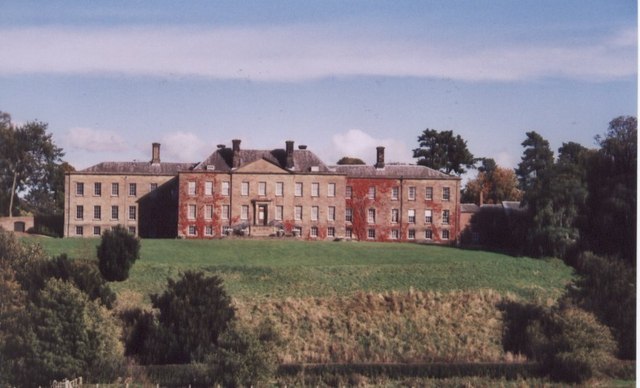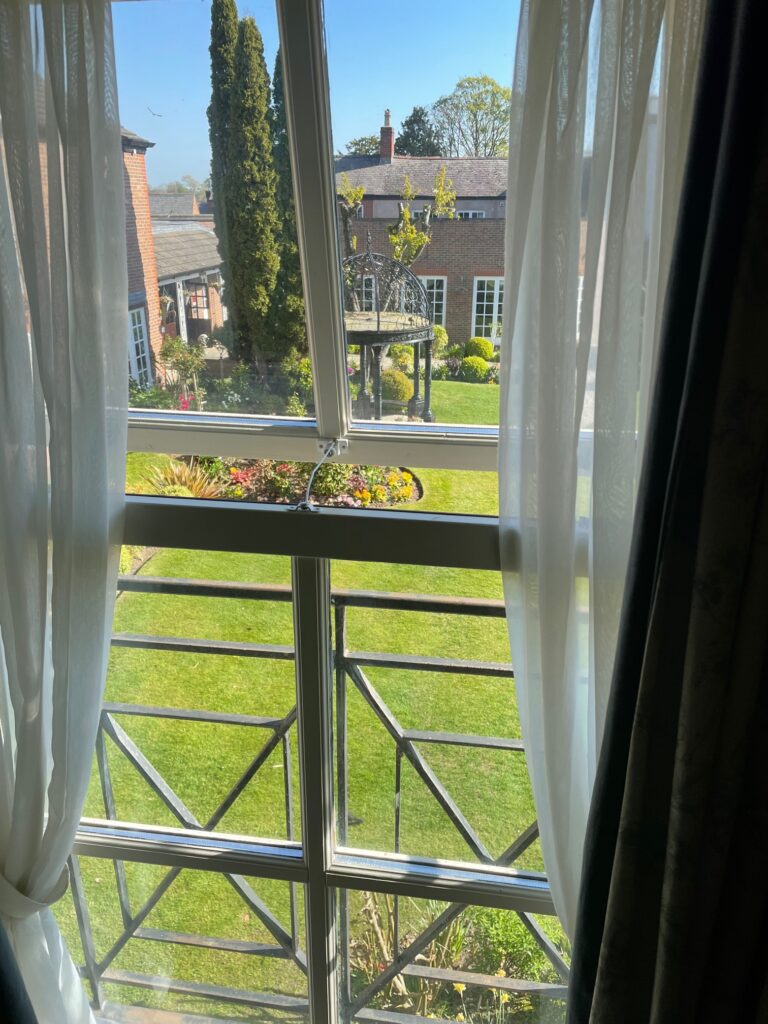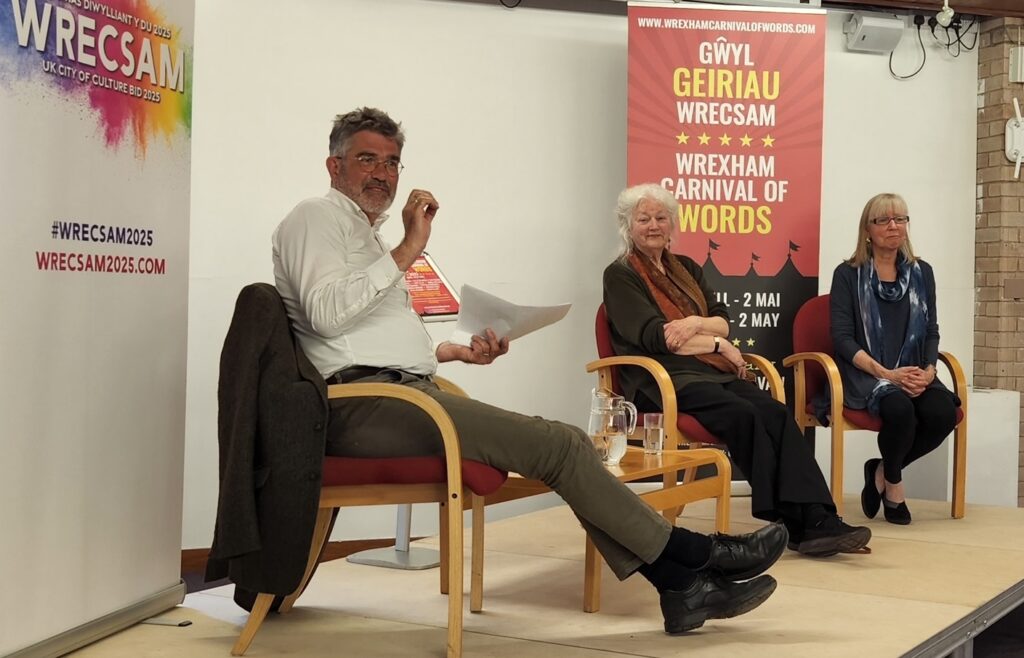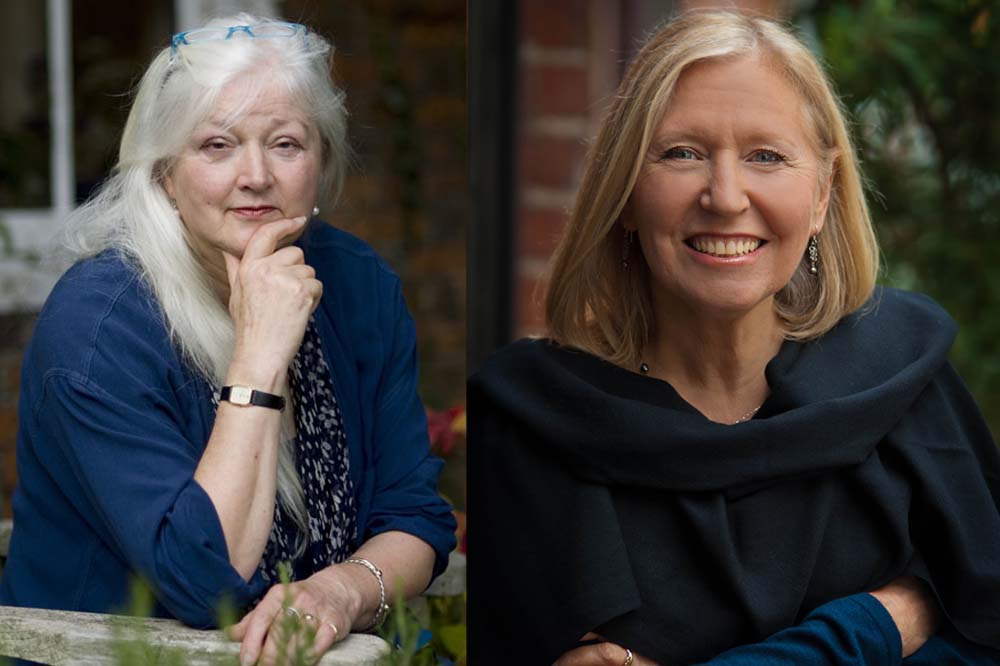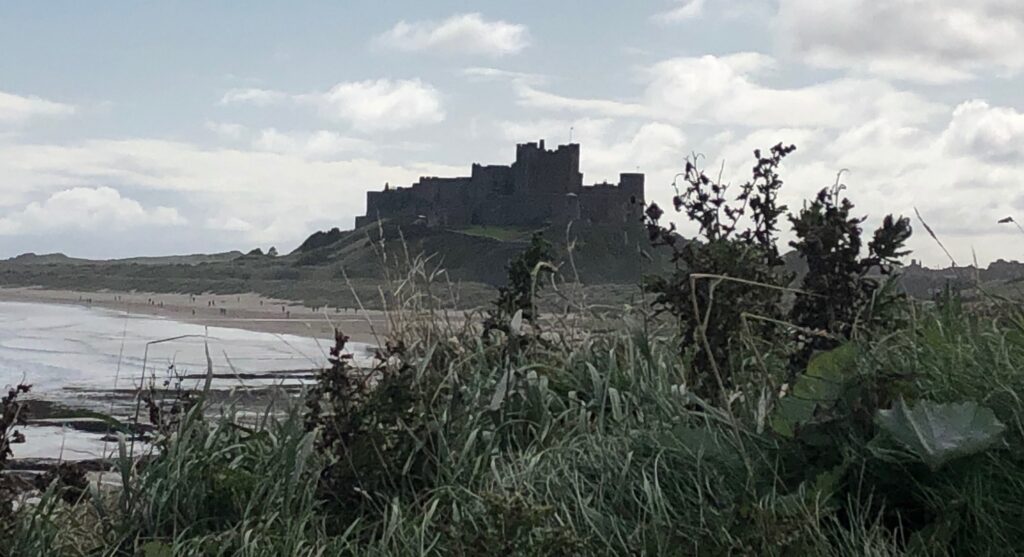BEWARE SPOILERS!!!
Season 2 of Netflix’s VIKINGS VALHALLA follows the further fanciful adventures of Vikings in the 11th century and, unfortunately, presents us with a bucket full of ridiculous nonsense over in London. The series bears little resemblance to what actually happened in the 11th century except that there were wars, deaths, births, and an inordinate amount of bloodletting. VALHALLA is far more concerned with offering titillating entertainment (often gruesome) rather than exploring intriguing historical possibilities. Nevertheless, historical figures who actually existed take the central roles in this drama with its numerous plot lines and story settings, and the characters themselves are worth considering to try to differentiate how they are presented in VALHALLA from what we actually know of them.
Bushy bearded OLAF HARALDSON, having lost his bid for kingship of Norway to Swein Forkbeard is now focused on ridding the world of pagans. This fits more or less with what we know of the historical Olaf. He won and lost (more than once) the throne of Norway over many years; and he gained a reputation for being a fierce anti-pagan. VALHALLA has him killed in single combat by Freydis at Jomsborg. In fact he died at the Battle of Stiklestad, and Freydis had nothing to do with it. VALHALLA also hints that despite his somewhat bloodthirsty reputation Harald would be canonized a saint, and that’s true. You can see churches in England today dedicated to St. Olaf. Was he ever the guardian of Cnut’s son Svein? Good lord, no! Was he the lover of Cnut’s concubine Ælfgifu as in VALHALLA? This is one of those historical gaps where fiction writers like to create intriguing relationships, and because of the lack of documentation for this period, such a relationship, while extremely unlikely, is not completely out of the realm of possibility. I’m giving the showrunners a pass on that one, but the relationship doesn’t really move the story forward except to remind us that Ælfgifu has landed in Norway with her son. More on her below.
HARALD SIGURDSON, like his half-brother Olaf, wants to be king of Norway. That is what drives him first to Russia and then to Constantinople. (He actually went to those places, but I doubt that he sailed a knarr over a very high waterfall. The showrunners must have been desperate for dramatic impact.) Because he is a Viking, Harald can withstand near drowning, terrible beatings, and incredible torture (is anyone else wondering how the heck they filmed that pec piercing??? Yikes!). He is unlucky in love, but at the series finale, with his older half-brother Olaf now gone, (Olaf was 20 years older, by the way although he doesn’t look it) we can intuit that he may one day get to be king of Norway. (Which he did, in fact; although if VALHALLA continues, I suspect he may have more adventures before he settles down in Oslo.) Did he ever hang out with Leif Erickson or Leif’s sister Freydis and father her child in a rustic bungalow in the woods? No. That’s pure fantasy and not remotely possible.
LEIF ERIKSON seems a bit purposeless in this series, going wherever happenstance takes him and even following a ghost up to a rooftop. This seems odd for a man who has been known as a famous Norse explorer for a thousand years now. The showrunners decided to make him utterly brilliant since he goes from being illiterate to reading and writing Arabic in about an hour, and he learns how to use an astrolabe in minutes. He never seems driven or passionate about anything, and the bouts of manic ferocity he had in Season 1 have all disappeared. His brilliance is, presumably, leading to his eventual journey west and his discovery of America (Vinland), which is what he was actually doing instead of smoking hashish in Novgorod and sailing knarrs over waterfalls on the way to Constantinople. If the series does show him sailing to Vinland in future seasons he will surely make good use of that astrolabe. But Leif’s adventures in the early 11th century (he was dead by about 1025) all take place way west of Norway, not in Russia or Constantinople.
FREYDIS ERIKSDOTTER, Leif’s sister, is a fierce woman warrior. She wants to preserve the pagan beliefs and pagan people that Olaf is trying to eradicate, and this sets up her final fight with Olaf. She is tough and fearless, and the scene in which she gives birth alone to Harald’s son is reminiscent of Brida’s similar scene in THE LAST KINGDOM. I can’t even imagine what was done to cure her of childbed fever; there were no antibiotics in the 11th century, and that was what she needed. In the end Freydis accepts the role as priestess and leader that was foretold for her by the spamaðr and that she has been resisting. In a way, she has been running from something rather than toward something. Freydis is mentioned briefly in two 14th century Icelandic sagas as going on an expedition from Greenland to Vinland like her brother Leif. In one saga she earns a reputation for treachery and murder; in the other she is portrayed as a fierce leader, and it is that second saga that the showrunners apparently turned to for inspiration about her character. However, all of her story in VALHALLA is invented.
ÆLFGIFU arrives in Norway and is made regent there by Forkbeard (who is years past his ‘sell by’ date by this time), and she is holding down the fort in the name of her son Svein while he is off killing pagans with Olaf. We never see her other son, Harold, and frankly history is silent about where Harold was while his mum was with Svein in Norway, so it’s anybody’s guess what he was up to. We don’t see her do much in Norway except worry about her son and sleep with Olaf. In the final scene of the season, grateful to Freydis for returning Svein to Norway instead of killing him, she makes peace with Freydis. Will that last? I’m guessing it will not. Yes, Ælfgifu did, historically, rule in Norway, sent there by Cnut, not by Swein Forkbeard. It did not end well.
Meanwhile, over in England, the showrunners have made up a plot that is implausible when it’s not utterly ridiculous.
EARL GODWIN in this season is an enigma. It’s not really clear to us if he can be trusted. And let me assure you that everything that happens in England in this season is invented, except for Godwin’s marriage to Gyða. The plot to poison Queen Emma, Godwin’s relationship with the tragic Ælfwynn, the simmering distrust between Godwin and Emma, Godwin’s relationship to someone named Bear, all of that is a figment of someone’s fevered imagination. It’s too bad that they couldn’t fill the historical gaps with a more plausible story line. I had to laugh when Godwin confided first to Ælfwynn and then to Gyða that his dream was to have a son who would be king. Talk about foreshadowing! Yes, we got it. Historically Godwin would have a son who would, for a very short time in 1066, be king of England. Godwin was dead by that time and never knew about his son’s coronation, but given that this show is supposedly going to take us all the way to 1066, I guess the showrunners felt they had to drop that little nugget into the script. Still, it’s hardly motivation for murdering the queen, supposing that Godwin was behind that. But was he? We don’t know. And if he wasn’t, then who was? (I’d put my money on Ælfgifu, but if you’ve read my novels you’ll know that I’m prejudiced.) Yes, Cnut did arrange Godwin’s marriage to Gyða. Everything else is nonsense.
GYÐA has been lurking in the shadows for most of this series until her marriage to Godwin. She is smitten by the handsome, loving, gentle Godwin (she didn’t see him murder poor Edmund Ironside last season) and wants to give him a son who will be England’s king. (Historically they had 9 children together, so she certainly did her bit.) Who was she really? In the show they’ve made her Cnut’s niece, but actually her older brother Ulf was married to Cnut’s younger sister Estrith, so she was Cnut’s sister-in-law, not his niece, and therefore not EXACTLY of royal blood. Nevertheless, she was part of Cnut’s extended kin group and she was, like Emma and Ælfgifu, a very formidable woman in this period.
CNUT wanted to conquer England back in Season 1, and once he accomplished that he wanted to use its wealth to conquer other places as well. In Season 2 he is off doing just that. Eventually he returns to London to act as mediator between Godwin and Emma. Also, he arranges the marriage between Godwin and Gyða, something that Cnut in all likelihood, did. And he would rule a northern empire of England, Denmark and Norway. He also sent his son Swein and his former concubine Ælfgifu to Norway to act as his regents there. As I mentioned above, that did not turn out well.
When it comes to QUEEN EMMA, the showrunners have gone completely off the rails by deciding to send her to The Dark Side. In search of drama they have invented an attempt on Emma’s life via a poisoned communion wafer delivered by an assassin disguised as a priest. Godwin intervenes to save her, and Emma is absolutely determined to discover who is trying to kill her. SHE SUSPECTS GODWIN! Learning that the assassin has a sister, Ælfwynn, in her household the queen is so obsessed with discovering what the girl knows that she watches coldly as Ælfwynn is tortured to death even as she protests her innocence. Feeling guilty at having murdered the poor girl, yet convinced that Ælfwynn’s sweetheart, Godwin, is behind the assassination attempt and wanting to convince herself, God and the world that she was not wrong in having her servant murdered, Emma rides all over Sussex with only one guard looking for some proof to bring against Godwin, and she finds A RING! Although when Cnut returns to England and he explains patiently that the ring does not prove Godwin’s guilt, Emma is not convinced, and she sends a subtle threat to Godwin so that he knows she doesn’t trust him. This entire plot line is outrageous nonsense, and even less believable than a knarr shooting over a waterfall. The showrunners expect us to believe that the savvy queen who in the last season directed the defense of London, counselled her stepson on how to preserve his kingdom, allied with Cnut when all else failed, and then worked in secret with Forkbeard and Godwin to outwit Ælfgifu’s plan to rule as England’s queen, has suddenly turned witless and paranoid. It makes no sense! It’s as if the showrunners never watched Season 1. Even their grasp of 11th century English culture is faulty. In the first place, Emma would never have been threatened by a poisoned communion wafer because the priests saying Mass would have been clerics that she knew well; no stranger would have been allowed to approach her. Ælfwynn, who is portrayed as a women with no wealth or standing, would actually have been a member of an elite Anglo-Saxon family in order to be a member of the queen’s household, so that’s all wrong. And instead of riding around Sussex talking to alewives, Emma was at this time likely pregnant or giving birth to her 2 children by Cnut. Where are they?
In the first season of VIKINGS VALHALLA the showrunners vilified the heroic Edmund Ironside by making him a spoiled brat, and they vilified Earl Godwin by making him Edmund’s murderer. In this second season they have vilified Emma by turning her into a darkly cruel and merciless queen. Essentially, VIKINGS VALHALLA is rewriting English history. Don’t believe it.

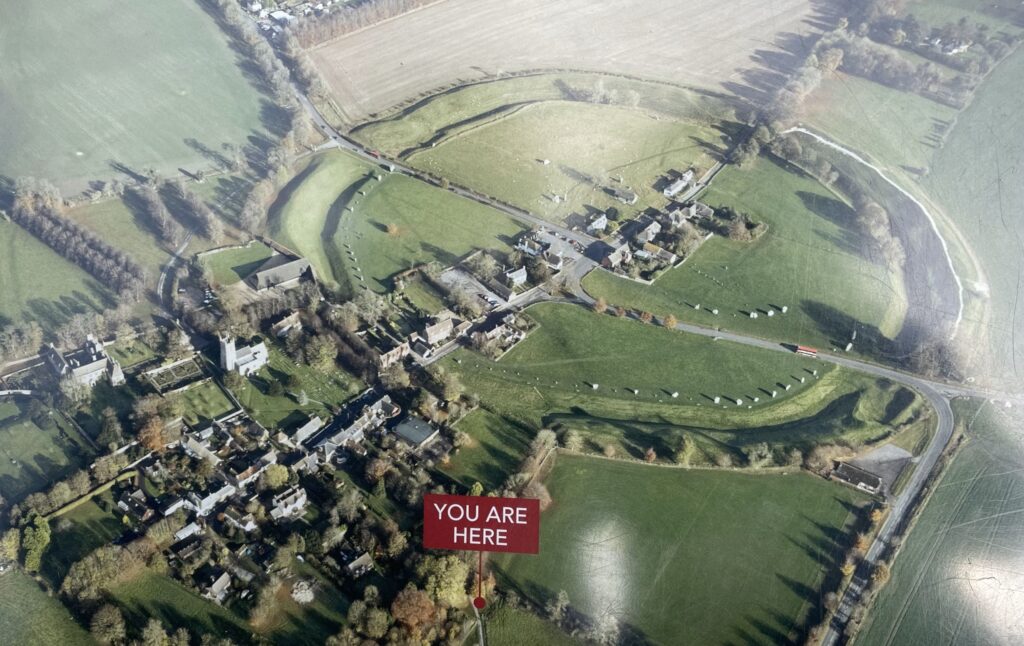

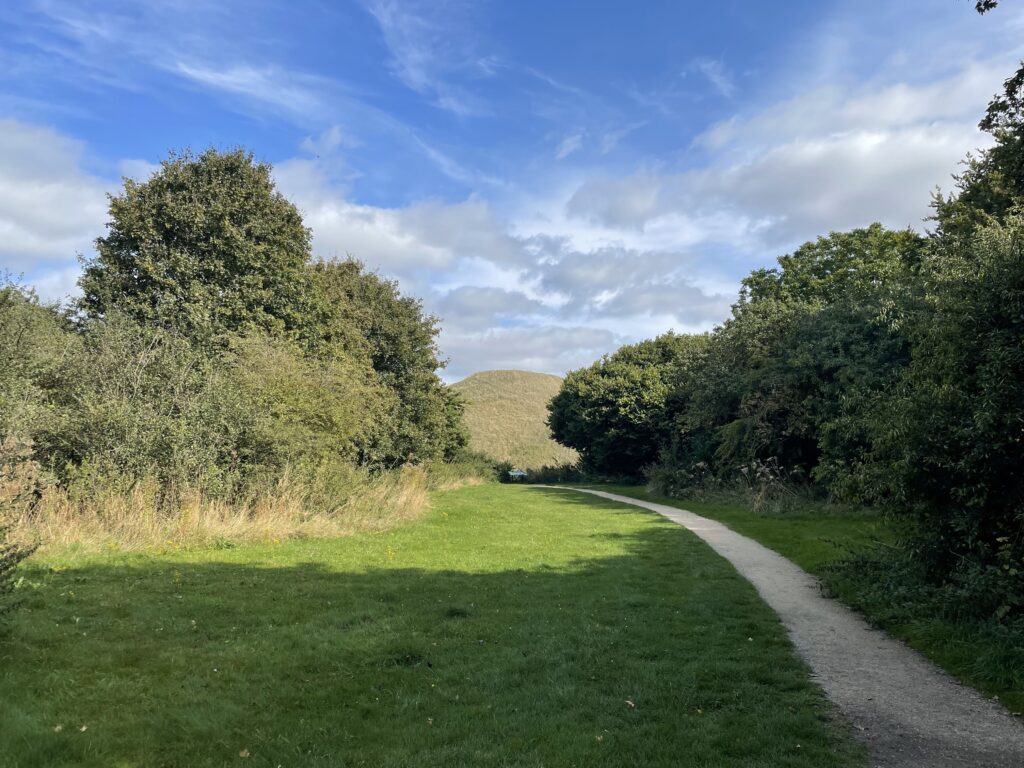
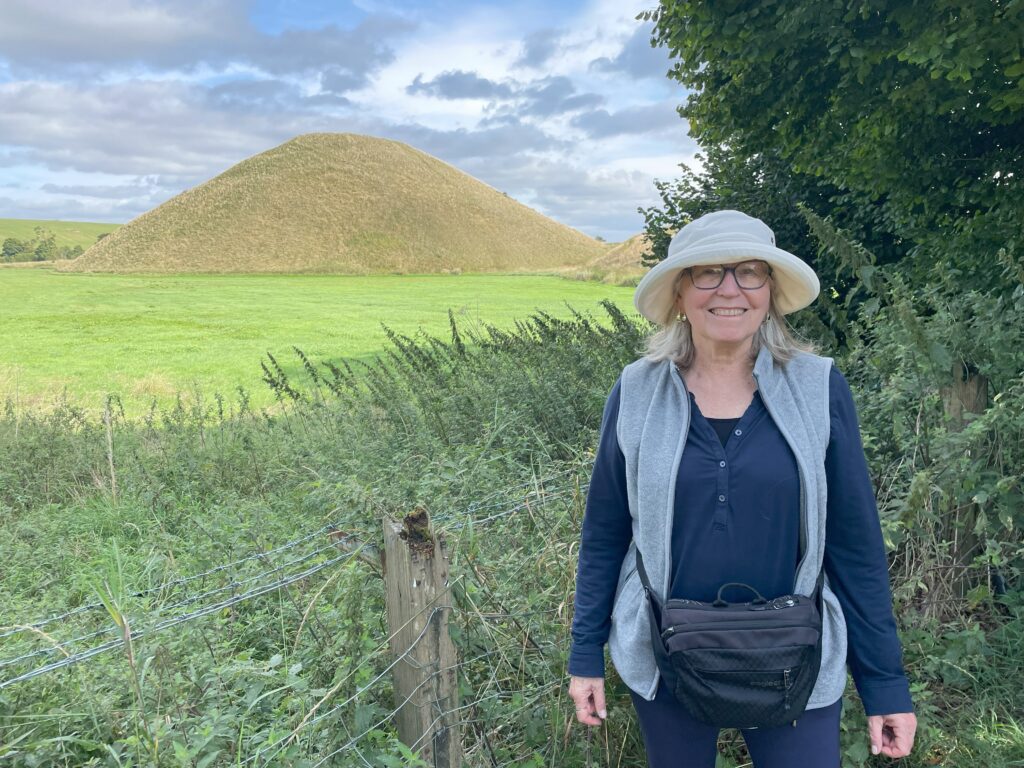
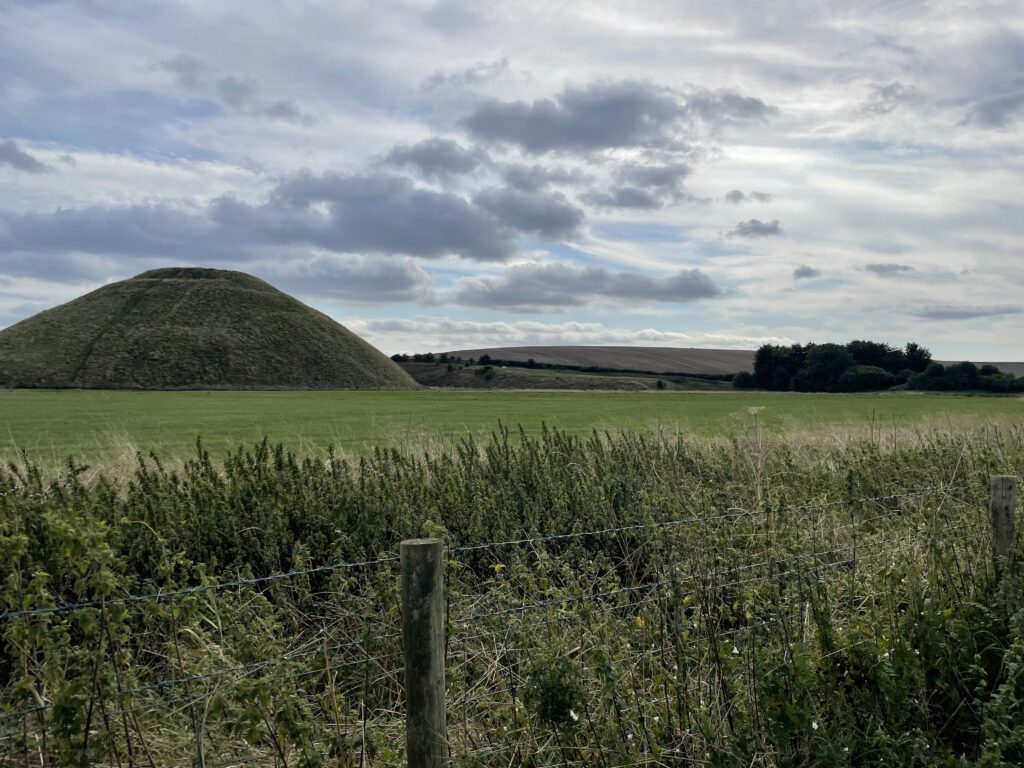
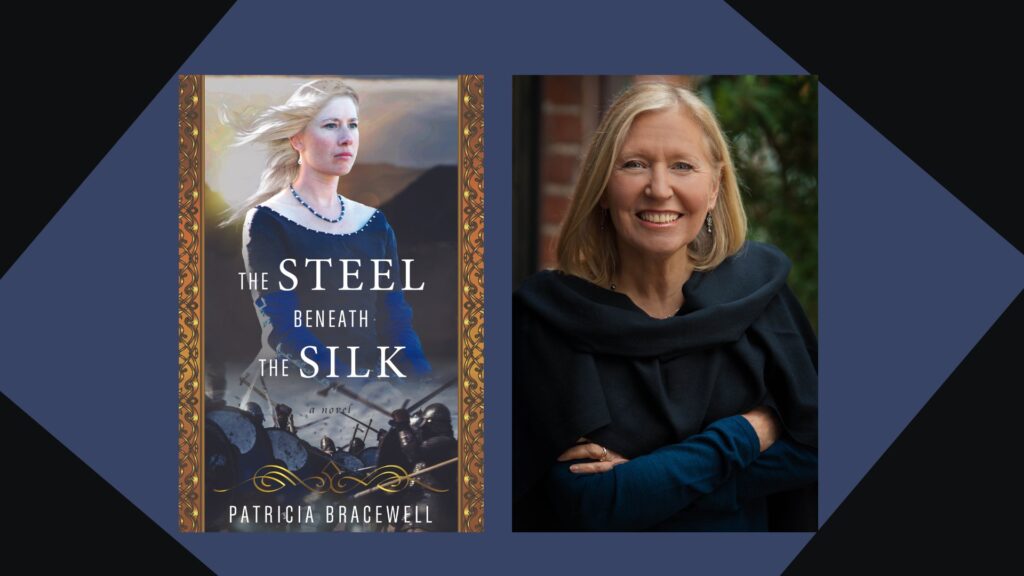 Please join me at Book Passage in August where I will be talking about The Steel Beneath the Silk and the process I use to shape historical events into a compelling story that sheds light on the distant past.
Please join me at Book Passage in August where I will be talking about The Steel Beneath the Silk and the process I use to shape historical events into a compelling story that sheds light on the distant past. 
